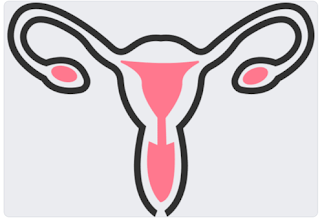In our recently published book, Microaggressions in Medicine, we engage with some of these seemingly subtler forms of epistemic (and other) types of injustice and harm in medical contexts. Let’s zoom out to mention the overall aims and goals of the book before zooming back in to focus on the epistemic dimensions of these injustices.
The two main theoretical aims of Microaggressions in Medicine are to reconceptualize how microaggressions have been understood by psychologists and philosophers and to introduce a new conceptualization of microaggressions that we call a harm-based account.
 |
| Microaggressions in Medicine (2024) |
- Using first-personal narratives, case studies, and testimonies of patients who are members of marginalized groups, we develop this harm-based account within medical contexts.
- Analyzing these case studies, we illuminate the serious and enduring harms of microaggressions and argue that they can ultimately lead to delaying or avoiding medical care, damaged trust relations with healthcare professionals, and ultimately worse health outcomes for patients who experience them.
- We introduce practical tools and strategies to help healthcare professionals reduce microaggressions in their practices and institutions, thereby diminishing harm caused to patients.
In what follows, and drawing on chapter 4 of the book, we focus on epistemic microaggressions, epistemic harm, and discuss why attending to epistemic microaggressions is an important part of the larger picture of epistemic injustice in healthcare.
In medical contexts, epistemic microaggressions are intentional or unintentional verbal or gestural slights made by healthcare professionals that dismiss, ignore, or otherwise fail to recognize claims that patients make about their bodies or health. Epistemic microaggressions result in epistemic harm to recipients (here, patients), namely, harm to them in their capacity as knowers.
When she was four months pregnant, bleeding and experiencing acute pain, Cottom knew that something was terribly wrong. Yet when she and her then husband arrived at her doctor’s office, instead of being seen immediately or being sent directly to the emergency department, she was told to sit patiently in the waiting room. When she finally got to see her doctor, he looked at her and quickly said that she was probably just too fat and that for “women like her,” spotting was typical at this stage of pregnancy. She was sent home.
When, later that night, her pain escalated, the on-call nurse assured her over the phone that because the pain was in her bowel and not her lower back, that it was probably constipation and that she should try to go to the bathroom. After three days of such pain and no sleep, Cottom went to the hospital, where she was told that she’d probably just eaten something that was “bad” for her.
There are countless microaggressive harms that Cottom experienced. It’s important to underscore however, that the result of those microaggressions was nothing micro. Our analysis focuses on how racialized and gendered epistemic microaggressions combine in ways that are unique to Black women (what we call the misogynoir of microaggressions).
In this case, it was clear that Cottom knew that there was something wrong, tried to convey this knowledge to her healthcare team, and continued to be viewed as lacking credibility with regards to her knowledge of her body. As a result of the entrenched biases and stereotypes about Black women, Cottom experienced a panoply of racialized gendered epistemic microaggressions.
Cottom is powerless relative to the healthcare professionals.
Her knowledge of her body is ignored.
Repeatedly, healthcare professionals assumed they knew better.
On account of her race, gender, and body size, Cottom suffered the epistemic harm of not being recognized as a credible knower, the practical harms of severe physical pain, the death of her daughter, as well as the enduring trauma of the whole experience.
These consequences are macro and tragic. But we are most concerned with the epistemic racialized gendered microaggressions that contributed to them. Cottom’s credibility as a knower was denied due to her race, gender, and body size and as a result, her knowledge claims were ignored or dismissed.
The racialized gendered epistemic microaggressions that Cottom experienced are reflections of imbalances in epistemic and other sorts of social power that themselves mirror broader patterns at play both within and beyond healthcare contexts. Healthcare workers belong to an elite professional class. They’re assumed to have epistemic authority within and beyond that context. They often exert epistemic power over their patients by blocking them from making meaningful contributions to clinical exchanges. This epistemic situation both reflects and reifies assumptions about power in the epistemic domain. For example, it makes clear who creates, controls, and deploys knowledge and who doesn’t; who is “rational” or “objective” and who isn’t (cf. Code 1991).
The epistemic microaggressions on which we have focused, combined with more macro and explicit stereotypes and assumptions about Black women, result in epistemic harms to patients: they’re denied the full status of knower, which is central to human dignity and value (Fricker 2007; Pohlhaus Jr. 2017; Dotson 2011).
As Cottom’s case makes clear, epistemic microaggressions are harmful to the epistemic status and agency of marginalized patients. A complete understanding of epistemic justice and injustice in healthcare and the myriad ways they manifest must include attention to the subtle epistemic dismissals and indignities that epistemic microaggressions reflect.





.png)


